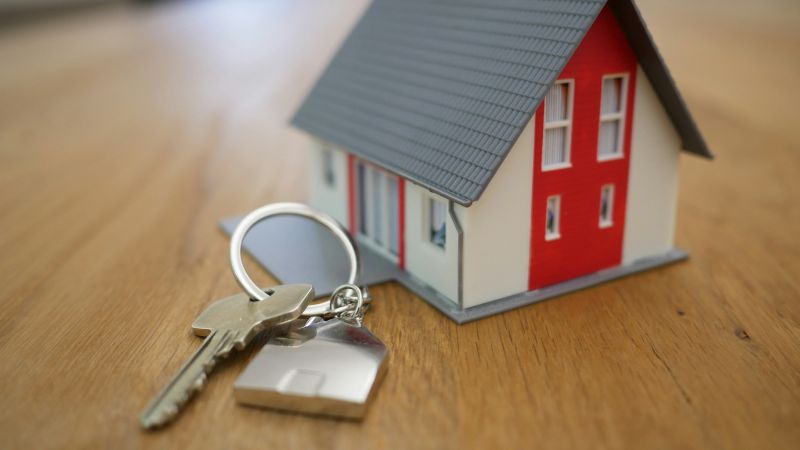When the majority of conventional loans require high credit scores and substantial down payments, it cuts a lot of people out of the running for a home. With an FHA loan, a first-time home buyer gets a break with a little help from the Federal government. Below, we’ll look at how these loans work, who they’re right for, and how you can go about getting one.
What Is an FHA Loan?
An FHA loan is a loan that’s backed by the Federal Housing Administration. This government branch guarantees a part of the loan to make it more tempting for lenders to approve people with lower credit scores and little to no collateral. These relaxed rules make it possible for homebuyers to have a shot at the property of their dreams.
Are FHA Loans for First Time Borrowers ?

Not necessarily. They are often associated with first-time buyers because of their relaxed terms, though you can apply for them at any time as long as you meet the criteria.
What Are the Terms of an FHA?
The specific terms of an FHA vary from person to person and lender to lender. The FHA sets out guidelines for the lender, but these guidelines are a framework as opposed to stipulations.
Here are a few things to note about the general FHA rules:
- Credit scores: The credit score for first time home buyer generally needs to be at least within the 500s. , the lower your credit score, the higher your down payment will need to be. For example, if your credit score is 500, you may be asked for a 10% down payment. If your score is 580, you may only need to put down 3.5% of the down payment.
- Mortgage insurance: Mortgage insurance essentially covers the out-of-pocket costs for a lender in case of a loan default. With an FHA loan, you’ll usually pay mortgage insurance until you’ve established at least 20% equity in your home.
- Appraisal: You must have the property appraised by an FHA-approved vendor. This ensures that the value of the property is aligned with the purchase price.
- Work history: Lenders will look at your finances, including your employment history. The steadier your work history, the more likely they’ll be to approve you.
There is some wiggle room with all of the above, so it’s important to choose a lender who is as upfront as they are reputable. Also, keep in mind that just because one organization turns you down, doesn’t mean they all will.
What’s the Interest Rate of an FHA Loan?

The interest rate for first time home buyers depends on when you buy, as these rates fluctuate based on the national and global economies alike. Generally, your interest rate will be around the same as a conventional loan. (If they are higher or lower, the difference is usually negligible.) Because lenders set their own interest rates, you can see some significant discrepancies between lender rates, whether you’re looking at a 10, 15, or 30-year mortgage.
How Much Can I Borrow with an FHA?
The amount you’re allowed to borrow depends on the location you’re buying in and the amount of savings you have. The more competitive the market, the harder it is to borrow, as homebuyers who qualify for conventional loans often have preferential treatment.
The best way to work out how much you can borrow is to calculate your expenses and debt compared to your total income:
- Compile your monthly bills: This includes your current rent or mortgage, car payment, student loans, child support/alimony, and credit card payments. For the credit card payments, you can use the monthly minimums as a base.
- Divide the total by your total gross income (how much you make per month before taxes).
- Ideally, your debt-to-income ratio should be 43% or less to qualify for an FHA loan. The lower your mortgage payment compared to your gross revenue, the better.
What Else Should a First Time Home Buyer AZ ?
If you’ve had a bankruptcy within the last two years, you’ll need to wait to apply for a loan. Between the bankruptcy and your application, it’s critical to keep your record as spotless as possible. If you’ve experienced a foreclosure within the last three years, you’ll also need to wait to apply. Again, ensure that you’re doing everything in your power to improve your credit score.
What Are the Closing Costs of an FHA?
FHA closing costs can include mortgage insurance, lender fees, appraisal fees, title insurance, property taxes, and home insurance. These costs vary based on the individual, and typically come out anywhere between 2 and 6% of the total home loan. So, if the home was $200,000, you could end up spending $12,000 just on closing costs alone.
What Are the Downsides of an FHA Loan?
The biggest downside of an FHA loan is the mortgage insurance, which often gets rolled into your mortgage payments. This extra cost bumps up your monthly loan, which can quickly become overwhelming if you run into unexpected emergencies. Plus, you’re limited to how much you can borrow based on the FHA.
When Should I Choose an FHA Loan?
Ideally, you’ll choose an FHA loan if you’re ready to buy now and you can’t wait to save up more for a 20% down payment on a conventional loan. For example, maybe a family member is selling a property, and they’re giving you a tremendous deal. In this case, you’re better off getting an FHA loan at a higher rate than trying to time the market for the future. (FHA loans are great options for first-time home buyers without substantial savings, but the increase in fees and the limits of the loan don’t make them the best option.)
If you’re interested in an FHA loan and have more questions, such as what your loan limits would be and whether your employment history is solid enough for approval, the team at Pro Mortgage LLC is here to help.
